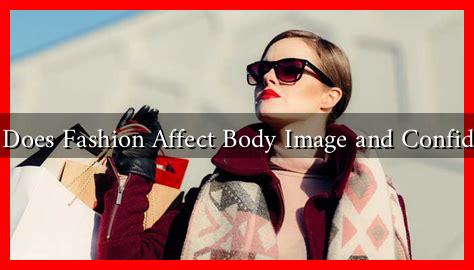-
Table of Contents
How Does Fashion Affect Body Image and Confidence?
Fashion is more than just clothing; it is a powerful form of self-expression that can significantly influence body image and self-confidence. The way individuals perceive themselves and their bodies is often shaped by societal standards, media portrayals, and personal experiences related to fashion. This article explores the intricate relationship between fashion, body image, and confidence, highlighting the positive and negative impacts that fashion can have on individuals.
The Influence of Fashion on Body Image
Body image refers to how individuals perceive their physical appearance and how they believe others perceive them. Fashion plays a crucial role in shaping these perceptions through various channels:
- Media Representation: Fashion magazines, advertisements, and social media platforms often showcase idealized body types that can create unrealistic standards. For instance, a study published in the journal Body Image found that exposure to thin-ideal images can lead to body dissatisfaction among women.
- Fashion Trends: Trends often dictate what is considered “in” or “out,” influencing how individuals view their bodies. For example, the rise of body positivity has led to more inclusive fashion lines, promoting diverse body types and encouraging self-acceptance.
- Peer Influence: The fashion choices of peers can also impact body image. Young individuals may feel pressured to conform to certain styles or trends, which can lead to feelings of inadequacy if they do not fit the mold.
Fashion as a Tool for Confidence
While fashion can negatively impact body image, it can also serve as a powerful tool for boosting confidence. Here are some ways in which fashion can enhance self-esteem:
- Personal Expression: Fashion allows individuals to express their personality and creativity. Wearing clothes that resonate with one’s identity can foster a sense of belonging and self-acceptance.
- Empowerment through Style: Many individuals report feeling more confident when they wear outfits that make them feel good. A survey conducted by Dove found that 80% of women feel more confident when they wear clothes that reflect their personal style.
- Body Positivity Movement: The rise of the body positivity movement has encouraged individuals to embrace their bodies, regardless of size or shape. This movement has led to the emergence of brands that celebrate diversity, helping individuals feel more confident in their skin.
Case Studies and Statistics
Numerous studies have examined the relationship between fashion, body image, and confidence. For example:
- A study published in the journal Psychology of Sport and Exercise found that women who engaged in fashion-related activities reported higher levels of self-esteem and body satisfaction.
- Research from the National Eating Disorders Association indicates that 70% of women feel pressure to be thin due to media portrayals, highlighting the need for more realistic representations in fashion.
Conclusion
The relationship between fashion, body image, and confidence is complex and multifaceted. While fashion can perpetuate unrealistic beauty standards that negatively impact body image, it also has the potential to empower individuals and boost self-esteem. By embracing diverse representations and promoting body positivity, the fashion industry can play a pivotal role in fostering a healthier relationship with body image. Ultimately, the key takeaway is that fashion should be a source of joy and self-expression, encouraging individuals to celebrate their unique bodies and cultivate confidence.

